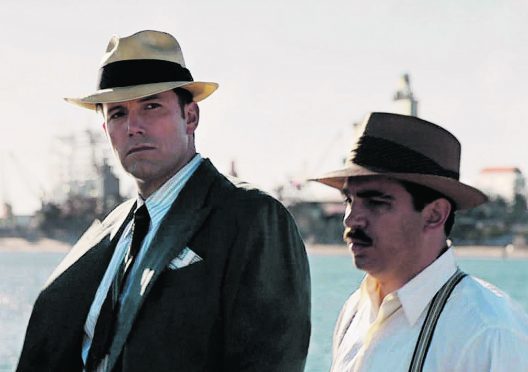Last year, footage of Ben Affleck’s ‘sad face’ during an interview for Batman v Superman: Dawn Of Justice went viral.
The film had been savaged by critics, and many wondered whether Affleck was regretting his return to the superhero universe following 2003’s panned Daredevil.
Today, mention of the caped crusader doesn’t invoke a look of melancholy, although Affleck admits he has a complex relationship with the character, or at least the costume.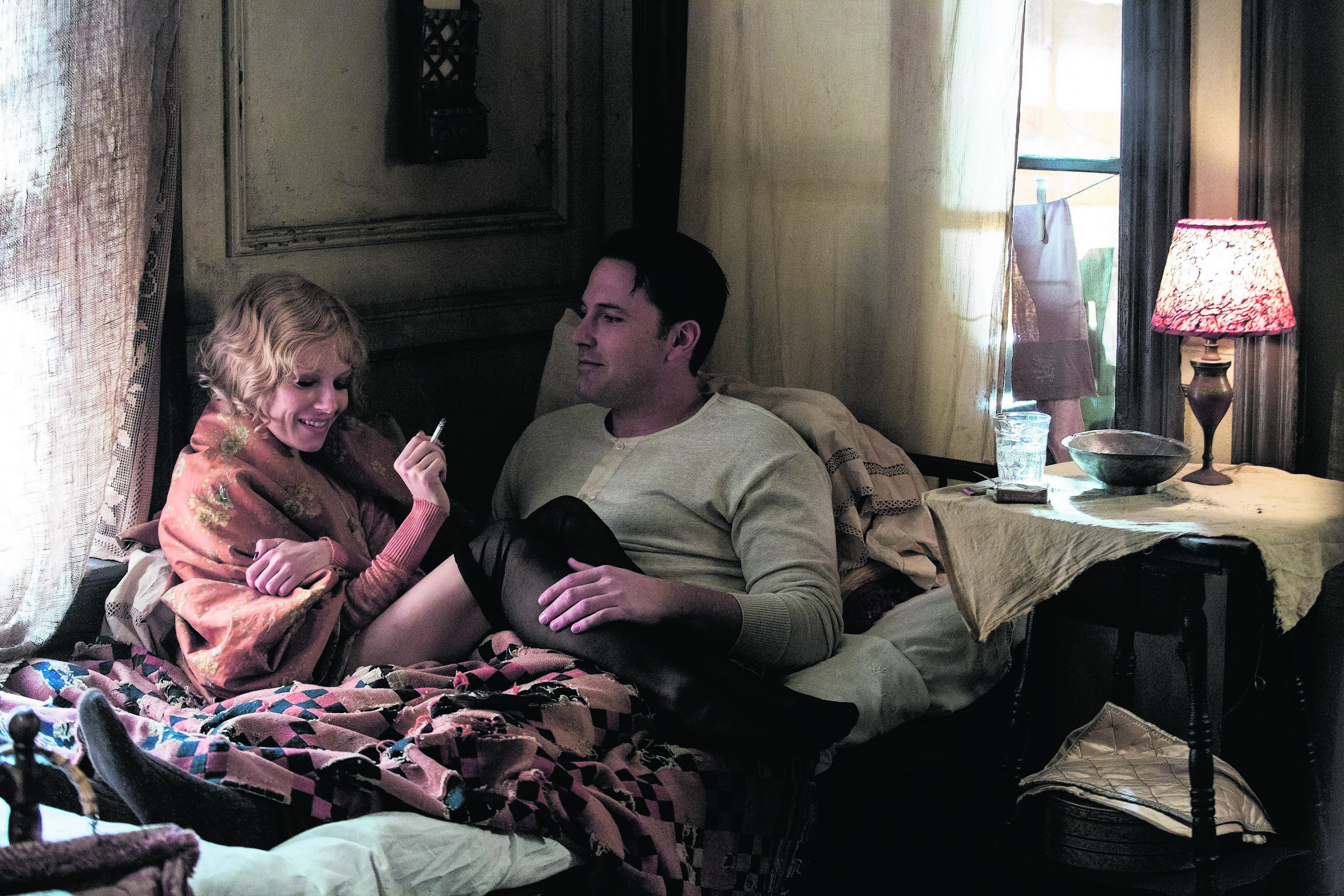
“I have a love/hate thing with the suit, that’s why I’m changing it,” quips the 44-year-old, who’s reprising the role for the upcoming Justice League movies, and is set to direct, as well as star in, The Batman, which he’s also writing the screenplay for.
“I’m in the middle of putting a script together, and some artwork and conceptual stuff,” he says. “It’s the kind of thing you want to assemble to get a sense of the look of a movie. I’m really looking forward to it.”
Affleck, whose broad 6ft 3in frame fills the small chair he’s perched on, is asked regularly about the superhero, but remarks that “when I was trying to do Live By Night, no one ever asked me how that was going”.
Live By Night is the new gangster thriller based on the bestselling novel by Dennis Lehane, which Affleck directed, produced and stars in, alongside Chris Messina, Zoe Saldana and Sienna Miller.
He also wrote the screenplay with Lehane, which marks their second collaboration following Gone Baby Gone a decade ago.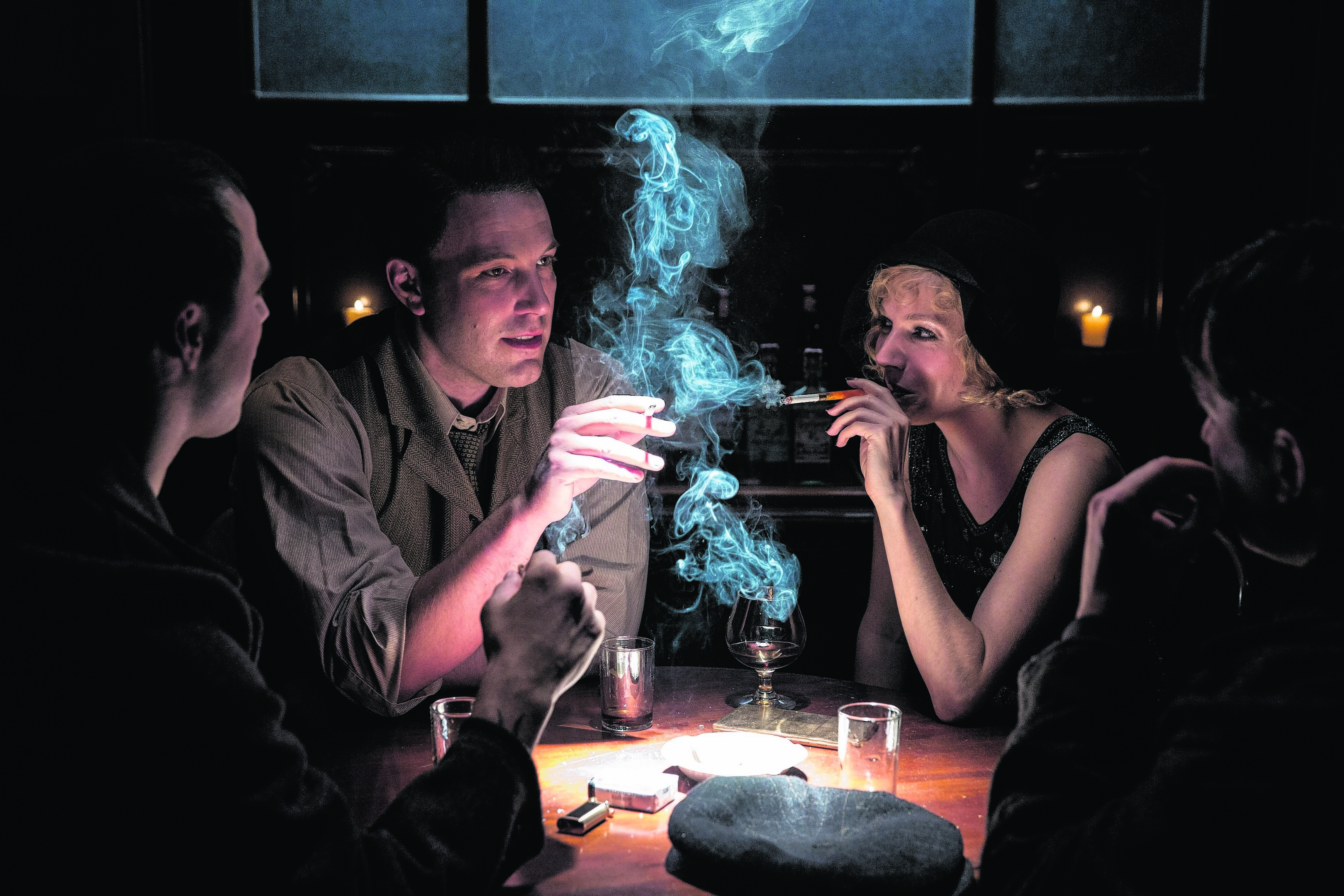
“It was a lot to take on. I wouldn’t have been able to make this movie until I’d made the three previous films,” admits Affleck, referring to 2010’s The Town, 2012’s Argo, which scooped the Academy Award for Best Motion Picture, as well as Gone Baby Gone.
“Live By Night was very elaborate and complicated and had to be designed well in advance, but I was working with some great actors and technicians,” he says of the movie, which is set in Prohibition-era America.
There were “a lot of sleepless nights”.
“You never know when you make a movie, either they coalesce somehow and the movie gods smile on you, or you just miss, and you never know what you’re going to get,” Affleck confesses.
There was never any doubt he would also appear in the film, however, as lead character Joe Coughlin, a man who returns from World War I determined to follow his own rules.
“I was comfortable doing that. I like the character, and I had a take on how to play him. I liked the idea of a guy who’s very taciturn and withheld, an internal character. The more I’ve directed, the more I like minimalist acting, and anyway, I had fun,” he says.
Joe enjoys a fair amount of success as an outlaw – much to his policeman father’s chagrin – but keeps it “small-time, running around with other guys and doing little stick-ups”.
But then he falls in love with the girlfriend of an Irish mobster, winds up in prison when a heist goes wrong, and signs on with the Italian mob after his release.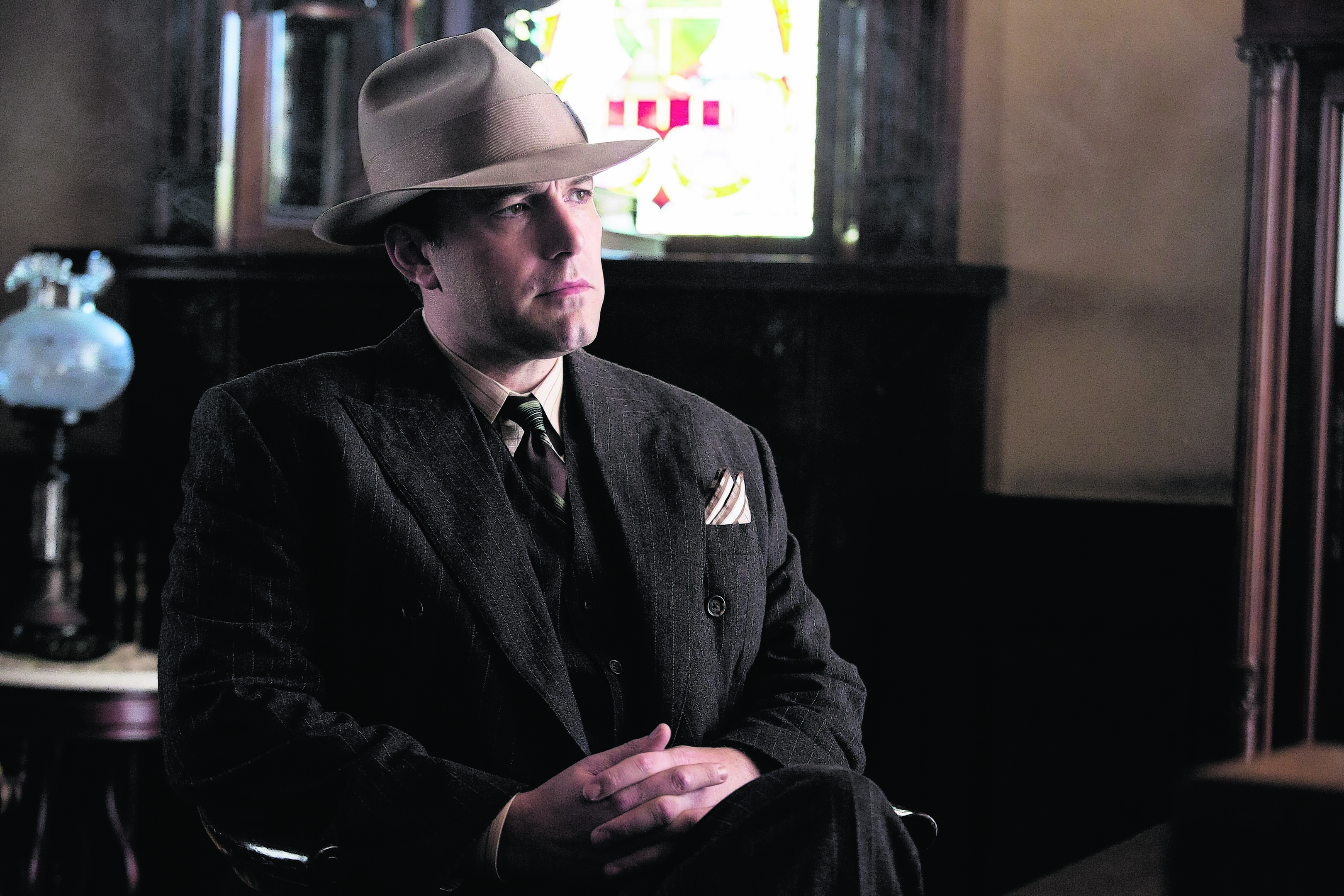
He’s dispatched to Tampa, and tasked with setting up a rum distillery in the ‘Sunshine State’. The subject of immigration is one of the film’s most poignant themes, and couldn’t be more timely.
“Yes, it’s become very topical again. I thought it was more dated perhaps than it turned out to be, but it shows these are still issues we’re struggling with in our country,” remarks Affleck who hails from Boston, where “everybody thinks they’re Irish”.
“One of the things I’m most proud about my country is that it really is built on immigrants,” he continues. “By people who came from other places looking to make a better life for themselves, and you had this incredible patchwork quilt of cultures and ethnicities. Part of what this movie deals with is the white Protestant establishment’s resistance to encroachments on their power.”
As for what the next four years might hold following Donald Trump’s inauguration, he simply offers: “Time will tell. I think it will be interesting to see.”
Another notable theme is the relationship between parents and children.
At one point, Joe’s father, played by Brendan Gleeson, warns his indifferent son that, ‘What you put out in the world will always come back to you, but never how you predict’.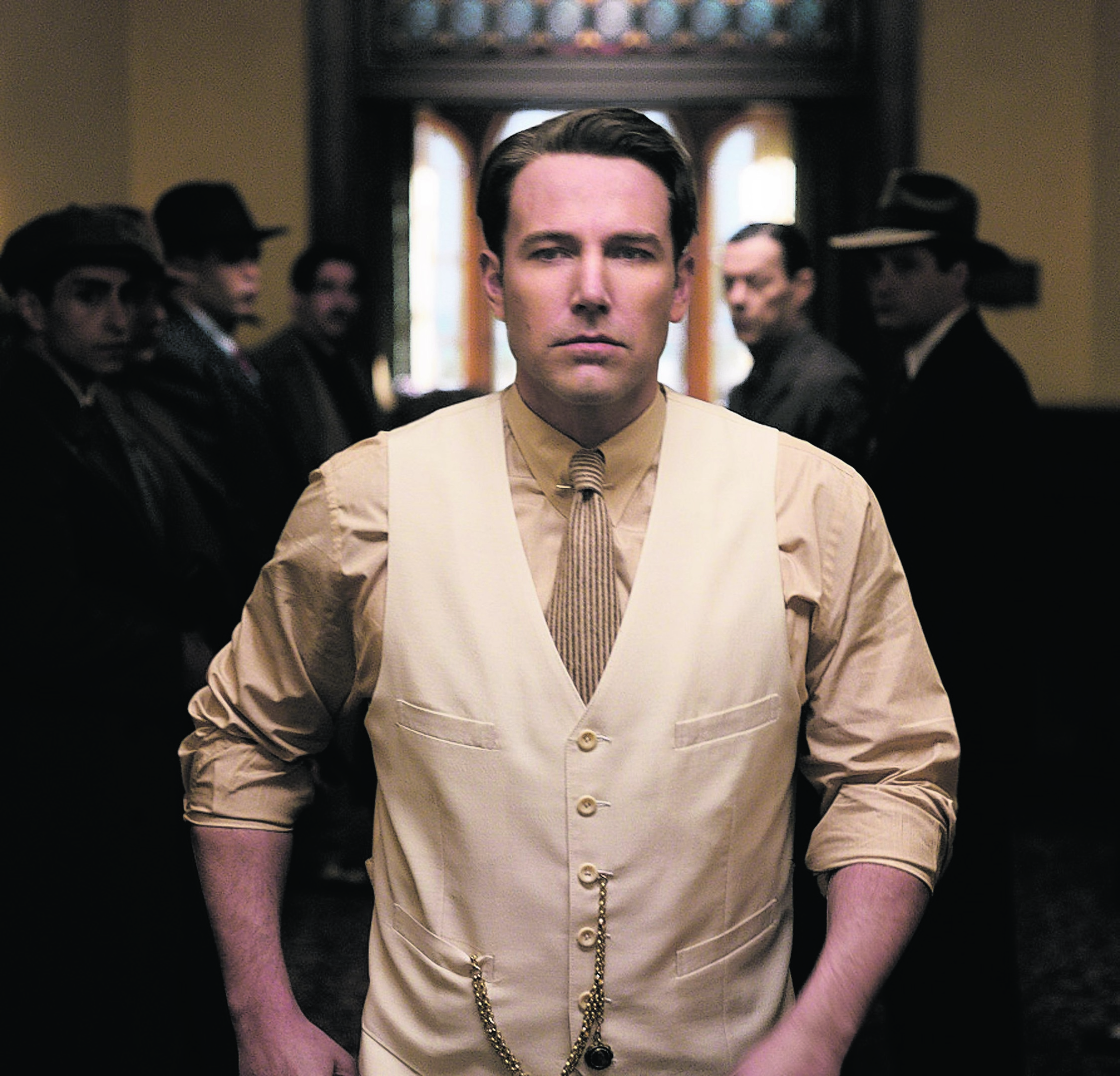
Affleck acknowledges “a number of my movies have had that theme, about children paying for the sins of their parents”.
“I don’t know why I’m drawn to that but I think there’s something fundamentally interesting about the fact we’re defined so much by who our parents are, and so little by who we are.”
Affleck has three children – Violet, 11, Seraphina, eight, and four-year-old Samuel – with his ex, Jennifer Garner (they separated in 2015).
“I wouldn’t want my children to be child actors, and I would not allow them to do that. I would want them to have a more normal and reasonable childhood,” he says. “If they wanna make those kinds of terrible choices once they get to be adults, they’re free to do that, but it’s not the kind of thing that I would be encouraging.”
Affleck himself was a child actor, making his screen debut in 1981’s The Dark End Of The Street. He only really came to prominence in 1997, however, when he and pal Matt Damon walked away with the Academy Award for Best Original Screenplay for Good Will Hunting, which they also both starred in.
In the ensuing years, he’s had roles in the likes of Armageddon, Shakespeare In Love, Pearl Harbor, Changing Lanes, Gigli and Jersey Girl, with varying degrees of success, before directing his first feature film.
“It seems like it’s a lot of me doing a lot of the work, but the truth is, directing is mostly casting, and about who you hire in your crew,” he notes, and despite taking on a myriad of roles on and off camera, he doesn’t describe himself as “a control freak”.
“But I’m definitely somebody who wants to work hard. I’m not doing this to do it in a half-arsed way, I’m doing this because it matters to me and I want to be good,” Affleck states.
“When you direct a movie, you have to own it and accept the criticism. There’s no one to blame but you. So if you’re gonna fall apart at the least little piece of criticism, you’re probably not very well suited to this business.”
